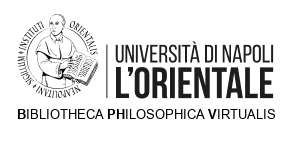L'aurore naissante / Jacob Böhme, trad. de Louis Claude de Saint-Martin, Lombarda, Milan 1927
Nel 1624 Jacob Böhme fu chiamato dinanzi ad una commissione di teologi per difendersi dall'accusa di eresia di alcuni passi contenuti nell'"Aurora consurgens".
Egli fu assolto, perché dimostrò l'ortodossia del testo attraverso delle spiegazioni che non erano in contraddizione con i principi del luteranesimo.
"L'aurore naissante" è un testo di mistica dell'essenza, nel quale sono descritte la natura, la materia e le origini della filosofia, della teologia e dell'astrologia.
L'utilizzo delle analogie e delle metafore alchemiche serve alla comprensione del "mysterium magnum", ossia l'ineffabilità divina che si determina nel mondo sensibile.
------
In 1624 Jacob Böhme was called by a committee of theologians to defend himself from the accusation of heresy for some passages contained in "Aurora consurgens".
He was absolved because he demonstrated the orthodoxy of the text through explanations that were not in contradiction with the principles of Lutheranism.
"The rising aurora" is a mystique text (belonging to the mystic of essence), which describes the nature, matter and the origins of philosophy, theology and astrology.
The use of analogies and alchemical metaphors is functional for the understanding of "magnum mysterium", namely, the ineffability of God that determine itself in the sensible world.
Jacob Böhme
Jacob Böhme (Alt Seidenberg 1575 - Görlitz 1624) è stato definito il primo "Philosophus Teutonicus". Studioso di autori come Eckhart e Paracelso, le sue dottrine riguardano temi mistici e magico-alchemici.
Scrisse "Christosophie, oder Weg zu Christo" (1624), "Aurora, oder die Morgenrothe im Aufgang" o "Aurora consurgens" (opera pubblicata postuma) e alcuni testi per i quali fu criticato duramente dai protestanti.
------
Jacob Böhme (Alt Seidenberg 1575 - Görlitz 1624) has been called the first "Philosophus Teutonicus." A scholar of authors such as Eckhart and Paracelsus, his doctrines concern mystical and magical-alchemical themes.
He wrote "Christosophie, oder Weg zu Christo" (1624), "Aurora, oder die im Morgenrothe Aufgang" or "Aurora consurgens" (a work published posthumously), and some texts for which he was severely criticized by the Protestants.
Louis Claude de Saint-Martin
Louis Claude de Saint-Martin (Amboise 1743 - Aulnay-sous-Bois 1803) è stato un filosofo illuminista, studioso del neoplatonismo, del misticismo e dell'esoterismo. Tradusse in francese le opere di Jacob Böhme.
Tra i suoi si scritti si ricordano "Des erreurs et de la vérité, ou les hommes rappelés au principe universel de la science par un Philosophe inconnu", "L’homme du désir", "Le ministère de l’homme-esprit", "Ecce homo".
------
Louis Claude de Saint-Martin (Amboise 1743 - Aulnay-sous-Bois 1803) was an Enlightenment philosopher, scholar of Neo-Platonism, mysticism, and esotericism. He translated the books of Jacob Böhme into French.
Among his writings, "Des erreurs et de la vérité, ou les hommes rappelés au principe universel de la science par un Philosophe inconnu", "L'homme du désir", "Le ministère de l'homme-esprit", "Ecce homo".
Shelfmark: F.L. 0366


